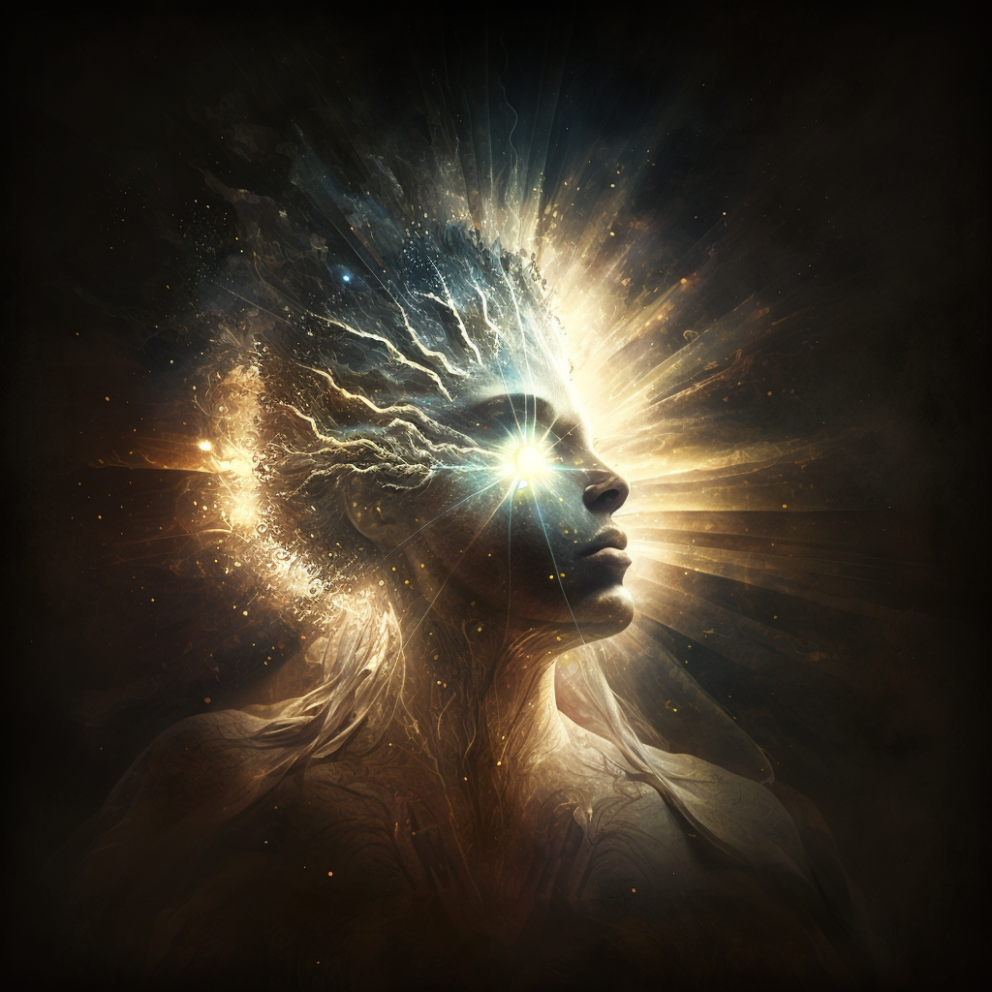Note: I am a spiritual teacher, not a licensed mental health professional. Seek the guidance of a qualified and licensed professional for all of your mental health concerns.
There has been growing interest in understanding the relationship between spiritual awakening and mental health in recent years. While these two realms have often been seen as distinct, emerging research and anecdotal evidence, they may be more interconnected than previously thought. In this blog article, we will delve into how spiritual awakening and mental health intersect and how recognizing this connection can lead to a more holistic approach to well-being.
Defining Spiritual Awakening and Mental Health
Spiritual awakening is a process of personal growth and transformation. It's marked by increased well-being, personal development, interconnectedness, and transcendent experience. Spiritual awakening experiences vary depending upon the individual, some may stabilize as a person's everyday way of experiencing the world, and some are fleeting.
Mental health is a state of emotional, psychological, and social well-being that enables individuals to cope with life's challenges and realize their potential effectively.
The fundamental well-being that accompanies spiritual awakening differs from the personal well-being that accompanies a good state of mental health. Fundamental well-being or "okayness" is a sense that, no matter what is going on in the outside world, everything is essentially OK, just as it is. It is a sense of serenity or imperturbability.
Shared Features of Spiritual Awakening and Mental Health Experiences
One of the challenges that people sometimes face is that there are shared experiences between spiritual awakening and mental health experiences, such as psychotic breaks. Some include altered states of consciousness, intense emotions, and strange or altered perceptions.
As stated, these shared characteristics can sometimes make differentiating between spiritual experiences and mental health challenges challenging.
The Dual Nature of Spiritual Experiences
While spiritual awakening tends to leave one in a state that is more blissful and loving than you were before, spiritual experiences are not always gradual and enjoyable.
Some people pass through a "Dark Night of the Soul," which can bring depression or highly stressful experiences. Spiritual initiation sometimes comes from a health, mental health, or life situation crisis.
Sometimes there is a struggle with the ego as you release your attachments to it. The ego is a survival mechanism; lessening the attachment can feel like an existential threat. This can cause fear and stress. Sometimes this also comes with a decrease in the need for approval from others, which can affect interpersonal relationships.
The Difference Between a Psychotic Episode and a Spiritual Experience
Over the years, I have had many people contact me during a psychotic episode and thought spirits were attacking them, etc. I do my best to direct people to seek medical care when this is the case. Shamanic healing is not a replacement for medical or therapeutic care.
Distinguishing between a psychotic episode and a spiritual experience can be challenging. Both may involve altered states of consciousness, unusual perceptions, and intense emotions. However, there are some key differences to consider:
Context: Consider the context in which the experience occurs. Spiritual experiences often happen with religious or spiritual practices, such as meditation or prayer, or during personal growth or transformation. In contrast, psychotic episodes are typically associated with mental health disorders, such as schizophrenia or bipolar disorder, and may occur without any specific trigger.
Duration and frequency: Spiritual experiences tend to be transient and episodic, whereas psychotic episodes may persist for extended periods and recur more frequently. Psychotic episodes can also be accompanied by a decline in overall functioning, including disruptions to one's social, occupational, and daily living activities.
Content and coherence: Spiritual experiences often involve themes of interconnectedness, love, and transcendence and may lead to a sense of clarity or insight. On the other hand, psychotic episodes may include delusions, hallucinations, or disorganized thinking that can be confusing, bizarre, or frightening to the individual and others.
Impact on well-being: Spiritual experiences are generally associated with positive outcomes, such as increased self-awareness, compassion, and personal growth. In contrast, psychotic episodes can lead to significant distress, impairment in functioning, and potential harm to oneself or others.
Response to treatment: Psychotic episodes often improve with appropriate mental health treatment, such as medication and therapy. Spiritual experiences typically do not require treatment, but individuals may benefit from support and guidance from spiritual mentors, communities, or therapists who understand the spiritual context of their experiences.
It is essential to consult with mental health professionals when attempting to differentiate between a psychotic episode and a spiritual experience. A thorough assessment, including consideration of the individual's medical, psychological, and social history, can help determine the appropriate diagnosis and intervention.



